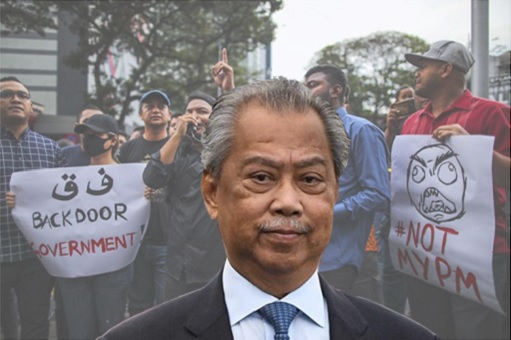
Barangkali Perdana Menteri membuat kenyataan sedemikian dalam usahanya untuk menyembunyikan hakikat bahawa pada ketika ini, beliau berada dalam keadaan yang amat berbahaya walaupun mempunyai kuasa besar sebagai ketua kerajaan.
Kenapa saya kata begini? Kita mulakan dengan satu kisah benar. Saya dan Lim Kit Siang bergegas pulang dari acara di Johor pada 25 Julai 2015 atas permintaan Setiausaha Agung Parti Keadilan, Saifuddin Nasution Ismail untuk satu perbincangan tergempar. Sebagai sekutu rapat, kami memang sering berbincang, terutamanya apabila ada perkembangan penting dalam politik negara.
Saifuddin memberitahu kami bahawa beliau mendapat khabar yang Peguam Negara Abdul Gani Patail akan mendakwa Perdana Menteri Najib Razak atas kesalahan salahguna kuasa dalam kes SRC pada minggu berikutnya. Kit Siang berfikir seketika dan bertanya kepada kami: “Adakah Najib akan menunggu sahaja membiarkan dirinya di’sembelih’?” Tiga hari kemudian, pada 28 Julai 2015, Gani, Muhyiddin dan Shafie Apdal dipecat daripada kerajaan Barisan Nasional.
Berbalik ke hari ini. Muhyiddin sedang mentadbir gabungan lemahnya ini dengan kewujudan 10 puak dalam PN. Ada empat puak dalam parti Bersatu – mereka yang masuk pada tahun 2016; mereka yang masuk Bersatu dari Umno selepas Pakatan Harapan menang dalam PRU 2018; kumpulan Azmin Ali; dan penyokong Tun Dr Mahathir Mohamad yang mampu menimbulkan masalah dalam pemilihan parti yang nampaknya telah dilengahkan ekoran krisis Covid-19.
Empat puak lagi adalah kumpulan-kumpulan bertelagah dalam Umno; setiap satunya dipimpin Najib, Ahmad Zahid Hamidi, Hishammuddin Hussein, dan kumpulan tak berpihak yang dianggotai Mohammad Hassan serta Khairy Jamaluddin. Dua puak lagi ialah PAS dan Gabungan Parti Sarawak.
Sebaiknya, Muhyiddin akan mahu menghapuskan penyokong Mahathir, dan mencari jalan supaya Bersatu tidak menjalankan pemilihan parti. Beliau akan mahu menghindar cabaran Mukhriz untuk kerusi presiden, yang walaupun sukar untuk Menteri Besar Kedah itu menang, namun tidaklah begitu mustahil. Muhyiddin juga tahu bahawa daripada empat puak Umno, beliau hanya boleh percayakan puak Hishammuddin.
‘Pemberontak’ PKR, Azmin Ali sedang berharap untuk mempunyai struktur parti bagi beliau memainkan peranan penting dan untuk membawa masuk penyokong akar umbinya yang sekarang tidak mempunyai induk politik kerana Bersatu berada dalam keadaan tergantung. Beliau juga perlu mewujudkan ruang untuk penyokong bukan-Melayu yang tidak lagi dialu-alukan dalam PKR serta tidak mampu ke mana-mana.
Bagi mengabsahkan kerajaan Muhyiddin, beliau perlu menunjukkan bahawa kerajaannya bersih. Pengundi, terutamanya golongan penentu atas pagar dalam kalangan orang Melayu, amat menghargai soal integriti, selain soal kesejahteraan ekonomi.
Selain menjamin peluang pekerjaan dan kesejahteraan ekonomi untuk rakyat Malaysia, Perdana Menteri turut perlu menunjukkan kepada pengundi bahawa beliau komited membanteras rasuah, jika tidak beliau tidak akan meraih keabsahan moral kerana melancarkan rampasan kuasa terhadap kerajaan Pakatan Harapan yang dilantik secara demokratik.
Untuk meyakinkan orang ramai, beliau perlu menunjukkan komitmennya menentang rasuah dengan membiarkan keadilan terlaksana – supaya Najib dan Rosmah Mansor, Tengku Adnan dan Zahid Hamidi disumbat ke penjara apabila mereka didapati bersalah atas tuduhan rasuah di mahkamah.
Masalahnya, mampukah beliau berbuat demikian tanpa diserang Umno? Jika menanti keputusan mahkamah terlalu berisiko, adakah Muhyiddin akan memilih untuk memutuskan hubungan dengan Umno dan Bersatu pada masa yang sama sebelum pembesar-pembesar Umno sempat melawan?

Ada cakap-cakap kononnya Muhyiddin, Azmin dan Hishammuddin sedang mencuba untuk menubuhkan parti baharu. Bagi mereka, ini mungkin satu penyelesaian yang bijak untuk semua masalah di atas. Tidak perlu bimbang tentang pemilihan Bersatu, penyokong Azmin ada rumah baharu, dan puak Hishammuddin dapat menghadirkan sokongan sebenar yang diperlukan Muhyiddin. Pun begitu, ada dua cabaran terhadap perancangan ini.
Pertama, Muhyiddin hanya memiliki sokongan 113 atau 114 kerusi, maksimum. Jika Ahli-ahli Parlimen parti-parti Pakatan Harapan (PKR, DAP, Amanah) dan Warisan, serta kumpulan Mahathir dalam Bersatu kekal bersama; Muhyiddin tiada ruang untuk berkuntau.
Jika Muhyiddin, Azmin dan Hishammudin berjaya memecahkan gabungan ‘Pakatan plus’ ini, mereka akan mampu menubuhkan parti baharu tanpa memerlukan puak Najib dan Zahid. Mengikut perkiraan mereka, barangkali masih perlu menggoda beberapa Ahli Parlimen PH untuk menyertai mereka.
Kedua, Muhyiddin mesti berhati-hati dengan Umno Johor. Pemimpinnya begitu bersemangat untuk mendapatkan semula kuasa yang mereka hilang dalam PRU lalu.
Nasihat saya buat Perdana Menteri (yang dahulunya saya bekerja begitu rapat bersama beliau, dan banyak berbincang dengan penuh jujur ketika kami bekerjasama dalam PH) ialah: Umno mungkin sahaja memperdaya beliau di Johor.
Pilihan raya mengejut di Johor mungkin mengakhiri hayat Bersatu di negeri itu, malah Muhyiddin juga mungkin kehilangan kerusinya di DUN Bukit Gambir.
Di tengah arus politik yang deras ini, Muhyiddin lah yang mungkin memulakan sesuatu untuk menewaskan lawannya dalam Umno. Atau mungkin Umno Johor yang memulakan serangan terhadap Perdana Menteri.
Bagi Pakatan Harapan dan rakan-rakan sekutu yang memilih untuk kekal bersama, seperti Warisan dan kumpulan pro-Mahathir dalam Bersatu; kita mesti kekal bersama. Rakyat Malaysia yang mengundi Pakatan Harapan demi kerajaan yang bersih serta peluang ekonomi yang lebih baik akan terus menyokong kita. - Liew Chin Tong,MD
A new party in the making?...
For a man who was deeply involved in a political coup early this year, it’s strange for Tan Sri Muhyiddin Yassin to say that people are fed up with politics and instead wanted to the government to work hard for the people. Most people can see that it is actually the main players in his fledgling Perikatan Nasional government that are jostling for positions and power during this current crisis of Covid-19 outbreak in Malaysia.
Perhaps the Prime Minister made the remarks in his attempt to hide the fact that, at this moment, he is merely a sitting duck despite his immense powers as the head of the government. Why do I say this? Let me begin with a true story. Lim Kit Siang and I rushed back from our events in Johor on 25 July 2015 at the request of Parti Keadilan Rakyat’s Secretary-General Saifuddin Nasution Ismail for an emergency discussion. As close allies, we consult each other regularly, especially on major developments in politics.
Saifuddin told us he heard that Attorney-General Abdul Gani Patail was going to charge Prime Minister Najib Razak for abuse of power in the SRC case in the following week. Kit Siang took time to ponder, and said to us: “Will Najib be a sitting duck waiting to be slaughtered?” Three days after that, on 28 July 2015, Gani, Muhyiddin and Shafie Apdal were sacked from the Barisan Nasional government.
Now back to today. Muhyiddin is governing his shaky coalition with 10 groups within PN.
There are four factions in Bersatu – those who joined in 2016, those who joined Bersatu from UMNO after Pakatan Harapan won the general election in 2018; Azmin Ali’s group; and Tun Dr Mahathir Mohamad’s supporters who could create an upset in the Bersatu party election which has been delayed ostensibly due to Covid-19 situation.
Another four are competing factions in UMNO; each led by Najib, Ahmad Zahid Hamidi, Hishammuddin Hussein, and a non-aligned group which include Mohammad Hassan and Khairy Jamaluddin. The other two consist of PAS and Gabungan Parti Sarawak.
Muhyiddin’s options
Ideally, Muhyiddin would want to get rid of the Mahathir supporters, and to find a way not to have Bersatu party elections. He wants to avoid Mukhriz Mahathir’s challenge for Bersatu presidency, although it’s difficult for the Kedah Mentri Besar to win but it’s not an impossible task. Muhyiddin also knows that among the four UMNO factions, he could only trust Hishammuddin Hussein’s group.
PKR renegade Azmin Ali is hoping to have a party structure that he could play a significant role and could bring in his grassroots supporters who currently has no political home due to the limbo in Bersatu. He also needs to create a political space for his non-Malay supporters who are no longer welcome in PKR yet has nowhere to go.
For Muhyiddin’s government to gain legitimacy, he needs to show that he runs a clean government. The voters, particularly the deciding swing voters among the Malays, value integrity highly, apart from economic wellbeing.
Apart from ensuring jobs and economic wellbeing for ordinary Malaysians, the Prime Minister must show voters that he is committed to fighting corruption, oherwise he would never gain moral legitimacy for launching the political coup against the democratically elected government of Pakatan Harapan.
To convince the people, he needs to demonstrate his commitment to fighting corruption by allowing justice to take its course – for Najib and Rosmah Mansor, Tengku Adnan Mansor and Zahid to go to jail when they are convicted by courts for corruption.
The only problem is, can he do so without UMNO revolting? If waiting for court conviction is too much of leaving to chance, could Muhyiddin resort to breaking up both UMNO and Bersatu at the same time before the UMNO big wigs strike back?

There is a rumour in the city that Muhyiddin, Azmin and Hishammuddin are trying to form a new party. For them, this could be a brilliant solution to solve all the problems. There’s no need to worry about Bersatu election, Azmin’s supporters could find a political home, and Hishammudin’s faction could bring the real support that Muhyiddin needed. However, there are two challenges for this plan.
First, Muhyiddin has only a maximum of 113 or 114 seats. If Pakatan Harapan parties (PKR, DAP, Amanah) and Warisan, as well as Mahathir faction of Bersatu MPs stick together, Muhyiddin has no room to maneuver.
If Muhyiddin, Azmin and Hishammuddin manage to break up this “Pakatan plus” coalition, they would be able to form their new party without the need to have both Najib and Zahid’s groups. In their calculations, they probably would attempt to lure the support of a few Pakatan MPs.
Second, Muhyiddin must be very careful with Johor UMNO. Its leaders are so eager to wrest power they lost in the last GE. My friendly advice to the Prime Minister whom I used to work very closely with and had many candid conversations during our time as PH partners is this: UMNO could pull a fast one on him in his own backyard in Johor.
A snap election in Johor may mean the end of Bersatu in the state, as well as Muhyiddin could even lose his Bukit Gambir state seat. In these tense political undercurrents, it could be Muhyiddin that would trigger something to tear down and tame his UMNO challengers. Or it could be Johor UMNO that would trigger the beginning of the onslaught against the Prime Minister.
For Pakatan Harapan and the allies who choose to side with us, such as Warisan and the Mahathir faction of Bersatu, we must stick together. Malaysians who voted for Pakatan Harapan expecting a clean government and better economic opportunities will still support us. - Liew Chin Tong.
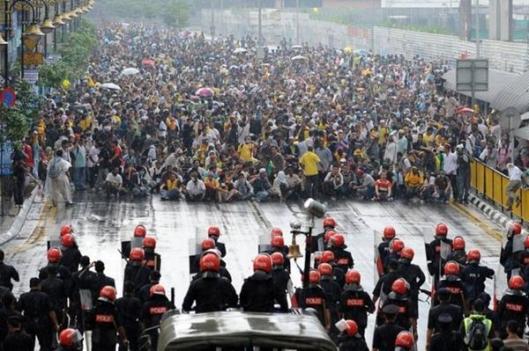
Perikatan Nasional and the future
of democracy in Malaysia...
Prime Minister Muhyiddin Yassin is now working to consolidate his Malay unity government, taking full advantage of the coronavirus lockdown that has paralyzed politics along with everything else in the nation. Parliament is, to all intents and purposes, suspended; opposition parties cannot mobilize; the people cannot take to the streets to protest. By the time the pandemic is over, we’ll be left with a fait accompli – a backdoor government composed of the very parties we rejected at the last election.
Perikatan Nasional’s agenda is not yet clear. Other than their antipathy towards non-Malays, it remains a very loose construct without a formal structure or a common political manifesto. It is, at best, an interim arrangement pending consensus on what a future Malay unity government would look like.
For now, Muhyiddin is not strong enough to impose his will on his own cabinet as other chief executives before him have done. Indeed, Muhyiddin’s low-key leadership is creating the impression that UMNO and PAS are calling the shots with senior minister Ismail Sabri fast becoming the public face of the administration.
In the meantime, each party in the coalition seems to be pursuing its own agenda with only minimal cabinet oversight. It does not make for an effective governance model; serious difficulties will arise when hard political and economic decisions have to be made post-pandemic.
Most observers speculate that it is only a matter of time before UMNO-PAS will reassert itself and seek to dominate the government though Muhyiddin might continue as its titular head, at least until Zahid Hamidi resolves the outstanding criminal charges against him.
Going forward, the big question is whether PPBM, UMNO and PAS will be able to overcome their political differences, ambitions and egos, and forge a more enduring partnership in the interest of Malay hegemony. If they succeed, Malaysia might never be the same again.
To sustain itself, the government will inevitably have to curtail the media, crack down on dissent and re-establish tight political control over all national institutions. A lot of the mass surveillance techniques now being pioneered to manage the coronavirus pandemic could well be used for political purposes later on.
Having finally got a foothold in Putrajaya, PAS, for its part, is likely to push ahead with its long-standing goal to make Malaysia a fully fledged Islamic state. After all, that has been the raison d’état for its existence; Hadi will now have to deliver or face pushback from his own supporters. Amanah president Mat Sabu’s recent warning that PAS will move quickly to amend the Syariah Courts (Criminal Jurisdiction) Act 1965 should not, therefore, be taken lightly.
Malaysia is, of course, already a hybrid Islamic state but that is not enough to satisfy the deeply entrenched Wahhabi establishment. While everyone else was focused on political reform, Wahhabi groups have been hard at work transforming Malaysia’s hitherto moderate religious landscape into a more conservative and austere one. What they want is nothing less than a Saudi-style constitution which makes religious dogma the constitutional basis of the state.
Going by the many statements of Hadi and others, their version of an Islamic state will see non-Malays treated either as kaffir harbi or kafir zimmi – enemies or subjects with limited rights. Non-Muslims will be disqualified from holding senior positions in government and other institutions. Other religions will only be allowed if their observances are discreet and do not cause offense to Muslims. Multiculturalism itself will be very narrowly defined. All this, of course, will also neatly fit in with their Ketuanan Melayu political agenda.
Once in place, these changes will quickly become irreversible. It is instructive that no nation that has gone down the Wahhabi road has ever been able to reverse course. If the experience of other Muslim states is anything to go by, anyone who tries to amend or alter religious edicts once they become law will face a barrage of opposition and be condemned as traitors and apostates. Religions – all religions – invariably complicate politics and make change difficult.
Mahathir’s war on corruption was essentially a war on the corruption of a few UMNO leaders, not an all-out assault on corruption wherever it may be found. Thus, while Najib and a few others were investigated and charged (and rightly so), many others corrupt politicians and businessmen – Malay and non-Malay – were left untouched. Corruption runs deep across all communities; no one wants to dig too deeply.
Now that UMNO is back in power and being led by many of the same corrupt and unrepentant leaders, there is every reason to expect that the culture of corruption will grow exponentially.
Indeed, to stay in power, PN leaders will have to oversee what may well become the most elaborate system of patronage and cronyism our nation has ever seen. Federal and state GLCs including investment funds, statutory bodies, holding companies and foundations are already a monstrosity; there are so many of them that no one even knows how many exist or who exactly has oversight of them. Billions of ringgit are being plundered each year by a horde of politicians, cronies and hangers-on. It will get worse.
As with many of the GLC appointments we are now seeing, political affiliation appears to trump qualifications, experience and integrity. Some of these appointments are not just criminal but a blemish upon the honour of our nation. When nepotism, dilettantism and corruption become governing principles, transparency, accountability and good governance become impossible. Any political system that would tolerate such a rotten and scandalous practice is already well advanced in decay.
And again, what we are seeing now – the mad scramble for high-paying sinecures at GLCs and other statutory bodies and diplomatic appointments – is just the beginning. Just wait till they start dishing out the contracts and taking out EXIM loans from China to build yet more infrastructure we don’t need and cannot afford. - Dennis Ignatius
dia rasis mabuk todi. Apa yg kau marah sangat dgn orang Cina kat Malaysia ni...- f/bk


Dua ekor ini baru saja lepas kena denda RM1000 di mahkamah tadi.Anak Razman kata pak dia tak buat salah apa pun.Menurutnya itu semua fitnah pembangkang semata2 yang iri hati kat pak dia.Kalau tak salah buat apa bayaq denda?- f/bk


Kalau Exco tebuk atap kena denda saja tapi MB lebai penipu tetiba boleh lepas, kita boleh
jangka apa akan jadi dengan anak sulung Presiden UMNO. Tahniah Penyamun Nasional (PN)...
Nak hantar tentera ke negara orang bukan seperti hantar walaun kutip derma
dgn tin milo atau seperti suruh walaun tebang buluh untuk pasang bendera PAS...
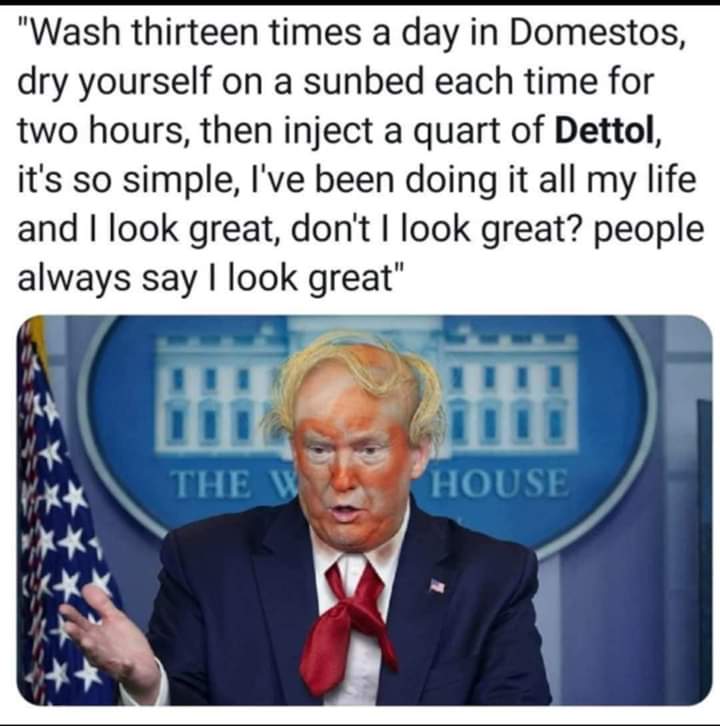
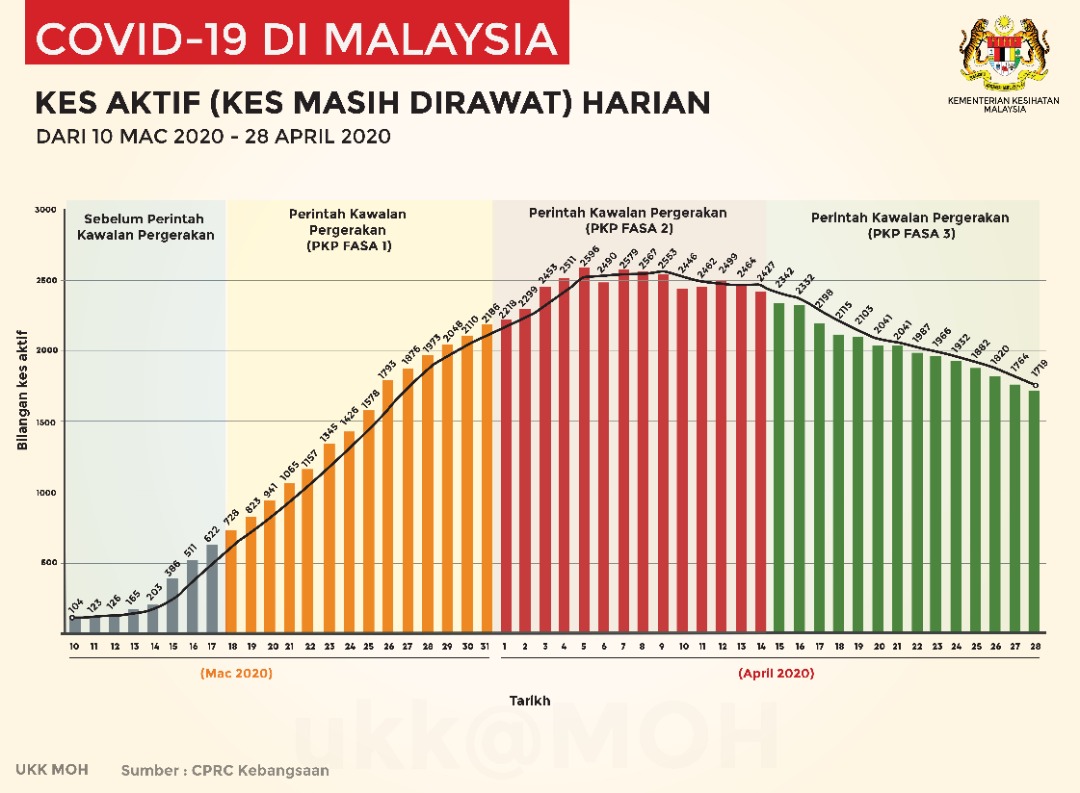
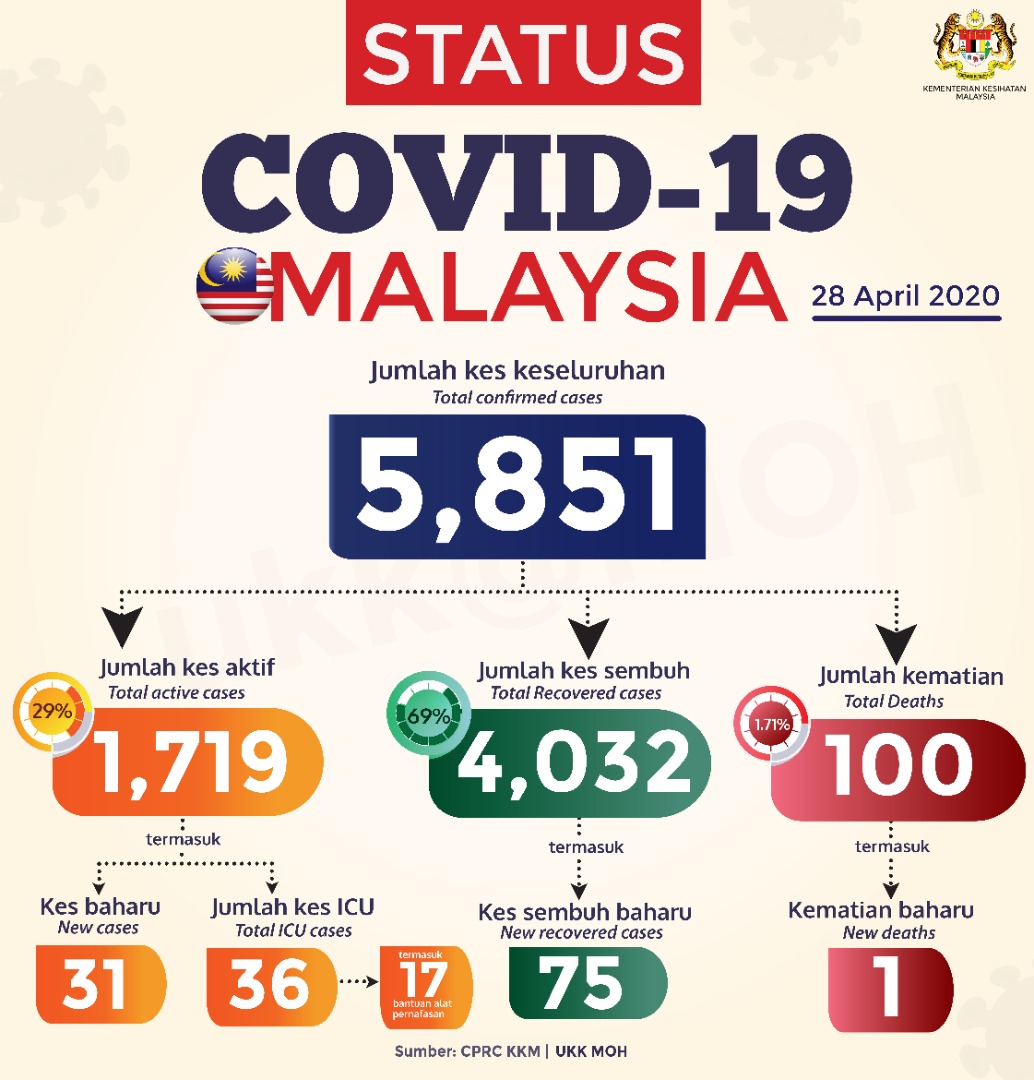







No comments:
Post a Comment